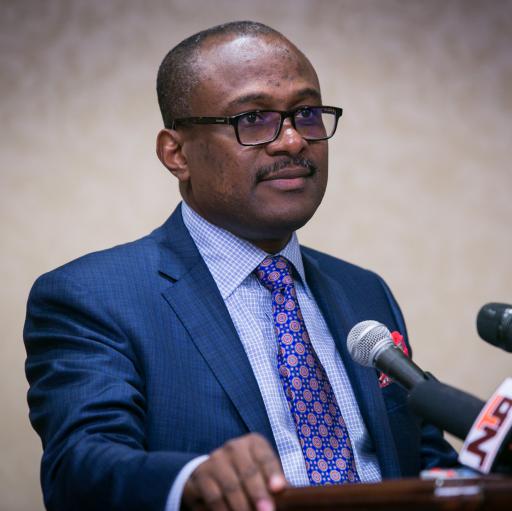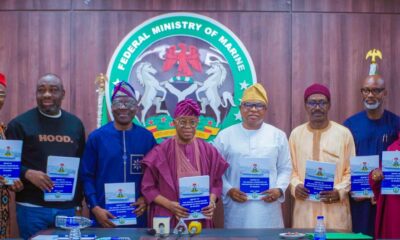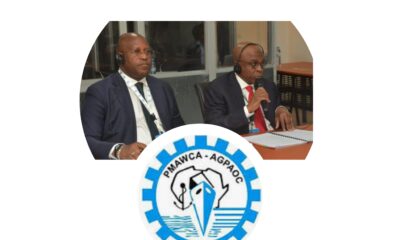Global investment in the oil and gas industry is in the tune of about $160 billion annually. Nigeria only has about $16billion investment inflow annually. But whether such low inflow investment into the oil and gas sector is in any way affecting the development of local content in the country, AMBROSE NNAJI reports
The Executive Secretary, Nigerian Content Development and Monitoring Board, NCDMB, Simbi Wabote, has said that the $16 billion investment inflow into the Nigerian oil and gas sector was not too bad for the development of local content
The Total Managing Director had during an oil and gas forum in Lagos said that there was about $160 billion being spent in oil and gas globally but Nigeria only has about $16 billion inflow annually. But whether this is in any way affecting the development of local content in Nigeria with such very low inflow investment into the sector, Wabote said it was not a bad number to come into the country.
The Executive Secretary who spoke with the Nation Update on the sideline of an oil and gas forum in Lagos said going by the map of countries that were oil and gas bearing 10 years ago and countries that are now oil and gas bearing, it’s is quite diverse. It is quite a lot, today in the record of oil and gas, we are talking about Senegal, Cote d’Ivoire, Ghana, Kenya, Tanzania, Mozambique and these are countries that never had oil and gas, he noted.
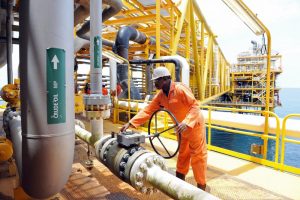
Oil and gas monitoring flow line in Nigeria
Ten years ago, the direct investment into oil and gas were coming into those countries that had oil and gas, Nigeria, Gabon, Algeria and rest of them. But today that money is being shared to other countries. So the statistics itself is not bad to have $16 billion out of that is not a bad number giving that other countries have been able to discover oil and gas.
“If you go to the numbers themselves and you look at that snapshot of that window and then look at what we are getting, I’m sure we are getting a lot more than other countries in the Africa continent”.
“I consider it extremely good because one thing you must realize is that other countries that are now discovering oil will relax all their fiscal regimes and regulations because they want them to come. So they will go there if those things are a lot more liberal”.
Having been in production for almost 56 years, we have maintained some of the regulatory requirements as well as the fiscals and they are still able to bring in funds to the country, so I think that in itself is remarkable.
According to him, the international oil companies (IOCs) are talking about it from their own perspective, they are talking about it because they want you to remain where you were 20 years ago in terms of fiscal regime and regulatory. Don’t forget that the IOCs are strictly business concern and they do everything to maximize profit. So if they can leave you where you are 20 years ago, they will leave you there so that they will increase shareholders return.
It is business, no businessman will sit down and see your take being eroded without bringing out figures, statistics and concerns to close down your take because their home countries asked to say five years ago we made $5 billion profit from Nigeria as an example. Last year it was $1 billion, what is going on, so they have to work to be able to show that we are trying to influence government policies, regulations so that our profit margin will remain the same in that country, he stressed.
He continued like I said it is a business, so if they can do anything to keep you where you are to continue to maximize profit, they will do it. But for us again is to say now that there are other players that have come into the market, how do we sustain our market share as a country.
He said that there was also the need to take into cognizance the existence of other players and the possibility of capital moving into those areas to nip and adjust some of our regulatory regimes and fiscal policies in order to retain them or to bring them.
Don’t forget that they are comfortable in Nigeria because now they know the system. He observed that the level of uncertainty of our geology was limited as compared to new frontiers. So they will rather like to stay with what they know than the unknown. It is only in extreme circumstance when they see that things are very tough and their margins are not increasing, they can say let’s take a plunge into those areas that we don’t know, he added.
He noted that the government was also looking at this point, adding that since we now have other players and capital can move anywhere, what we can pull and what we adjust in order to retain our partners and to bring in more investment.
So it is a continuous struggle, it is not something that will remain where it is. We will continue to review it as we go especially with latest technologies now like shale gas, shale oil everywhere. These were things that didn’t exist about 10 to 15 years ago. So it befits on us to look at what we have and make adjustment in order to retain our market share in the business.
“So I agree the industry bill is taking quite some time but I can assure you that all hands are on deck to see that this year that bill is passed to end the level of uncertainty that we have in the industry”.
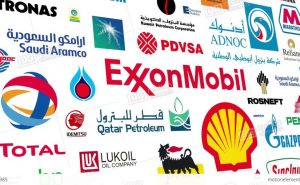
International Oil Companies in Nigeria
Wabote however agreed that both Nigeria and the IOCs were suffering as a result of non-passage of the petroleum industry bill (PIB). He noted that the IOCs were here to make money while Nigeria is also here to benefit from the proceeds of oil adding it’s a two-way street. We probably are losing, they are also losing because of the level of uncertainty that it creates, he stated.
It is a mutual arrangement if you understand what I mean, “it’s not that Nigeria suffers more, they also suffer more because most of them have to write down some of their reserves globally because of some of the challenges they face in oil and gas sector”, he stated.

 Business5 years ago
Business5 years ago
 News5 years ago
News5 years ago
 Crime2 years ago
Crime2 years ago
 News5 years ago
News5 years ago
 Football5 years ago
Football5 years ago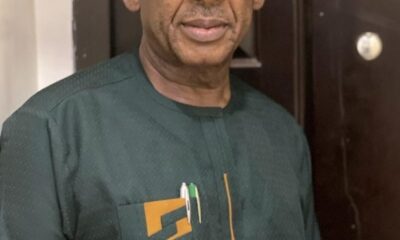
 News1 year ago
News1 year ago
